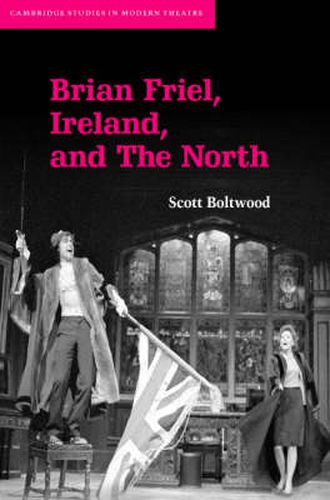Readings Newsletter
Become a Readings Member to make your shopping experience even easier.
Sign in or sign up for free!
You’re not far away from qualifying for FREE standard shipping within Australia
You’ve qualified for FREE standard shipping within Australia
The cart is loading…






After nearly five decades as one of Ireland’s most celebrated playwrights, Brian Friel has been the subject of ten books and dozens of articles. This study expands Friel criticism into a sizeable body of material and into a fresher interpretative direction. Along with considering Friel’s more recent plays, the book analyzes his interviews and essays to chart the author’s ideological evolution throughout a career of more than forty years. Moreover, a chapter is devoted to his often ignored articles for The Irish Press (1962-1963), a series that reveals unsuspected insights into Friel’s disposition towards the Irish Republic. Refining our understanding of Friel’s relationship to Republicanism is central to the argument; rather than assuming that the author embraces nationalist ideology, the book relocates the conceptual concerns of his work away from Dublin and to ‘The North’, this bridge between Ireland and the British province of Northern Ireland.
$9.00 standard shipping within Australia
FREE standard shipping within Australia for orders over $100.00
Express & International shipping calculated at checkout
After nearly five decades as one of Ireland’s most celebrated playwrights, Brian Friel has been the subject of ten books and dozens of articles. This study expands Friel criticism into a sizeable body of material and into a fresher interpretative direction. Along with considering Friel’s more recent plays, the book analyzes his interviews and essays to chart the author’s ideological evolution throughout a career of more than forty years. Moreover, a chapter is devoted to his often ignored articles for The Irish Press (1962-1963), a series that reveals unsuspected insights into Friel’s disposition towards the Irish Republic. Refining our understanding of Friel’s relationship to Republicanism is central to the argument; rather than assuming that the author embraces nationalist ideology, the book relocates the conceptual concerns of his work away from Dublin and to ‘The North’, this bridge between Ireland and the British province of Northern Ireland.